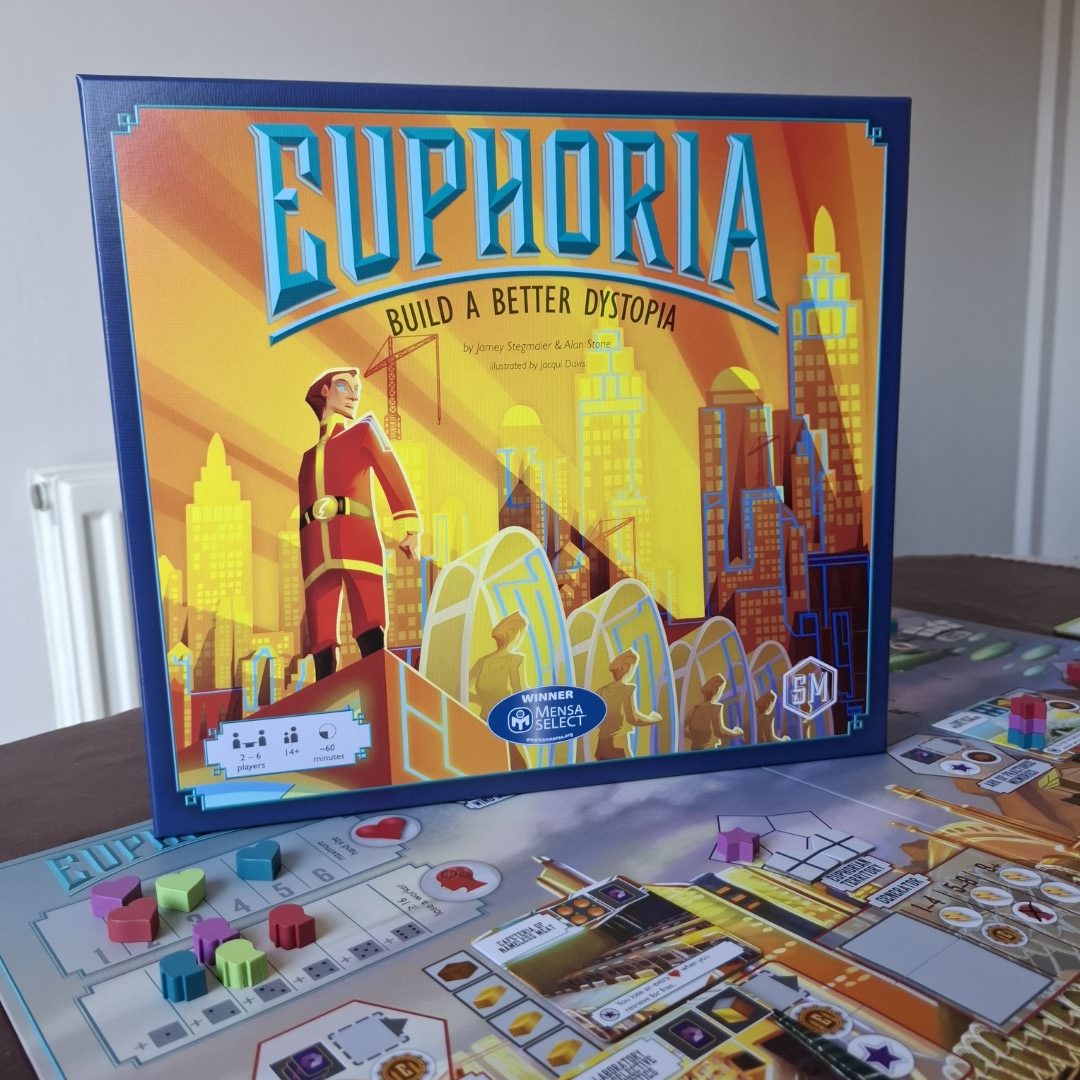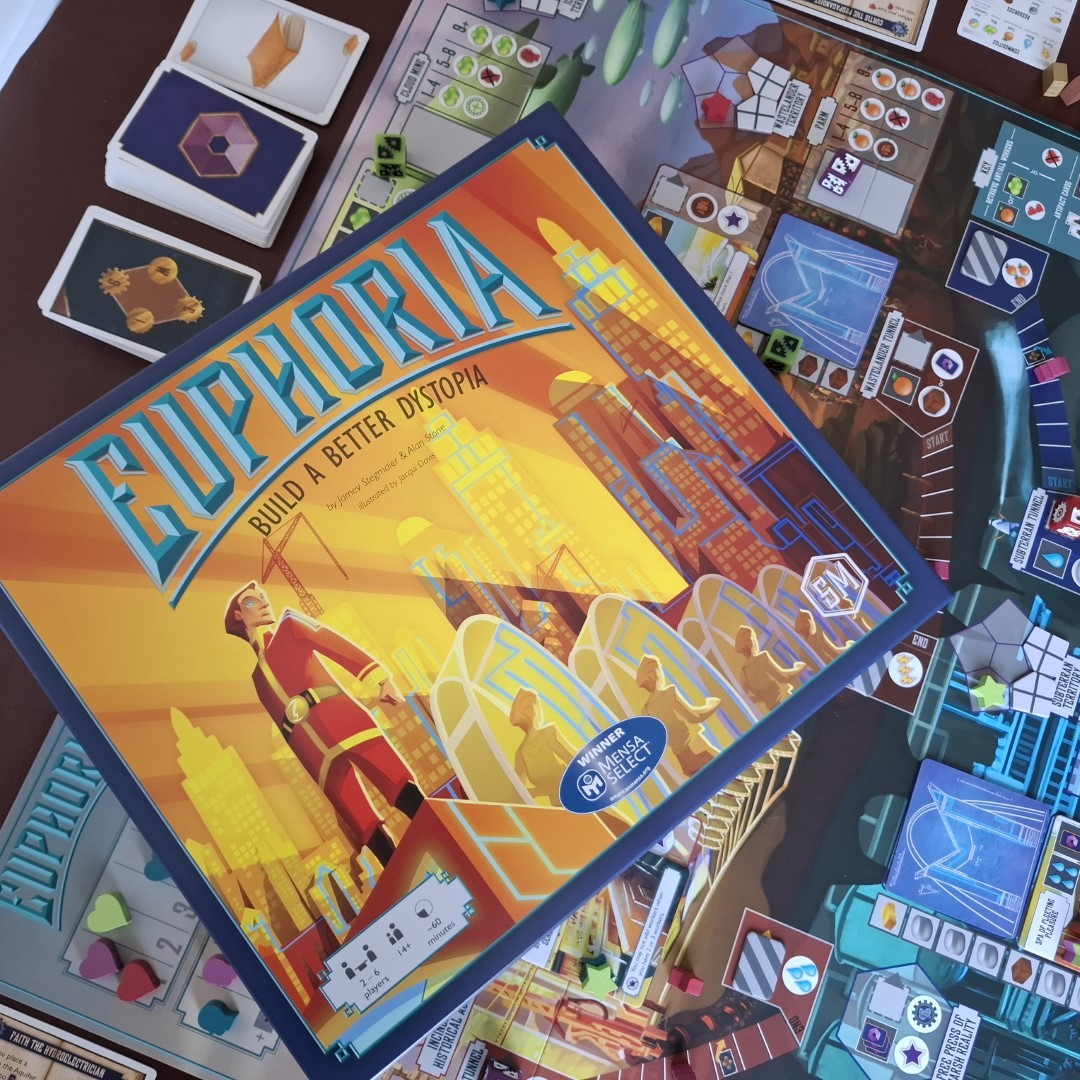What if a dystopian future wasn’t all grim and hopeless? What if, instead, it was a perfectly controlled society where you, as a leader, could shape a brighter tomorrow—at least for yourself? That’s the premise behind Euphoria: Build a Better Dystopia, a worker-placement board game designed by Jamey Stegmaier and published by Stonemaier Games. Although I should cavaet this introduction with the game apart from that initial description feels somewhat abstract, I didn’t get a strong sense of theme beyond the description.
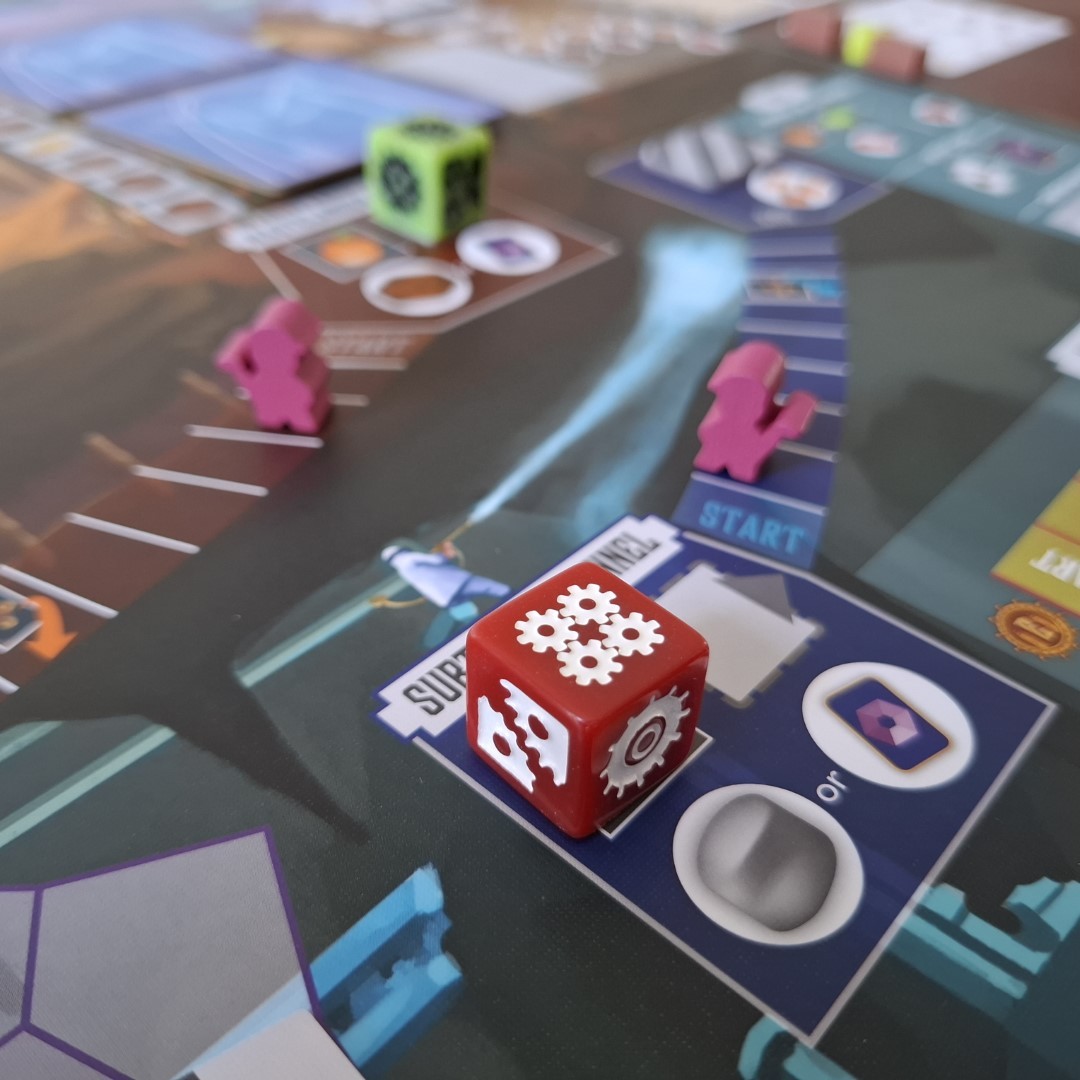
Nevertheless in Euphoria, players take on the role of elite leaders in a dystopian society, using their workers (represented by dice) to gather resources, construct buildings, and gain influence over the different factions. The game is all about managing your workers’ intelligence (because too much knowledge is obviously dangerous in a dystopia), balancing your allegiances, and strategically advancing toward victory.
But does it deliver a satisfying gameplay experience? Let’s dive into how it plays.
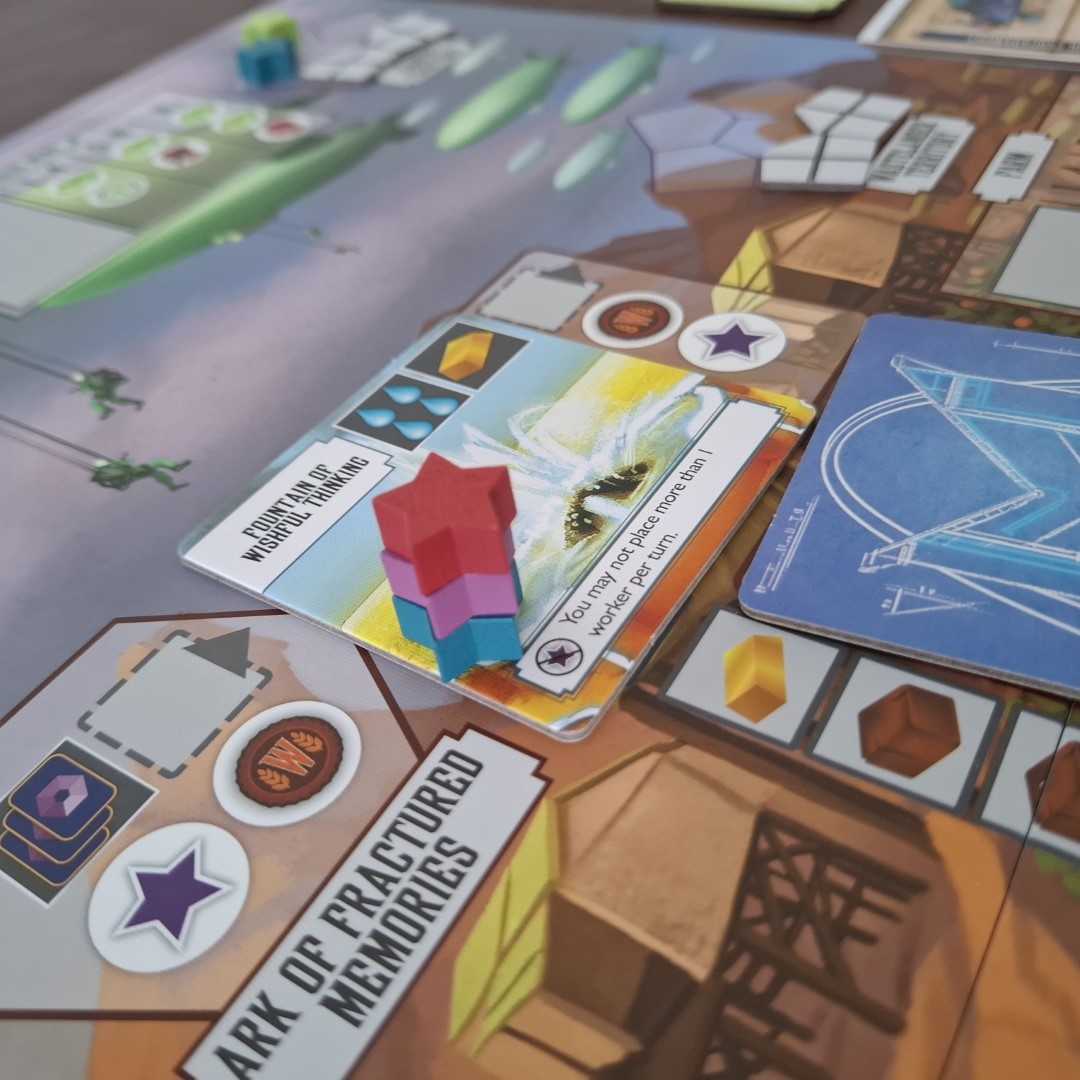
How does it play?
At its core, Euphoria is a worker-placement game with a slight twist: your workers are dice (not a twist), and their values represent their intelligence. Roll too high, and they might realize they’re living in a dystopia—leading them to rebel and leave you. Managing this risk while strategically using your workers is a key part of the game. However, an equally frustrating push your luck element.
Each player starts with two dice (workers), a recruit card, and some starting resources. The board is divided into different areas controlled by factions: Euphorians, Subterrans, Wastelanders, and Icarites. As the game progresses, players can gain the favor of these factions to unlock bonuses and strategic advantages.
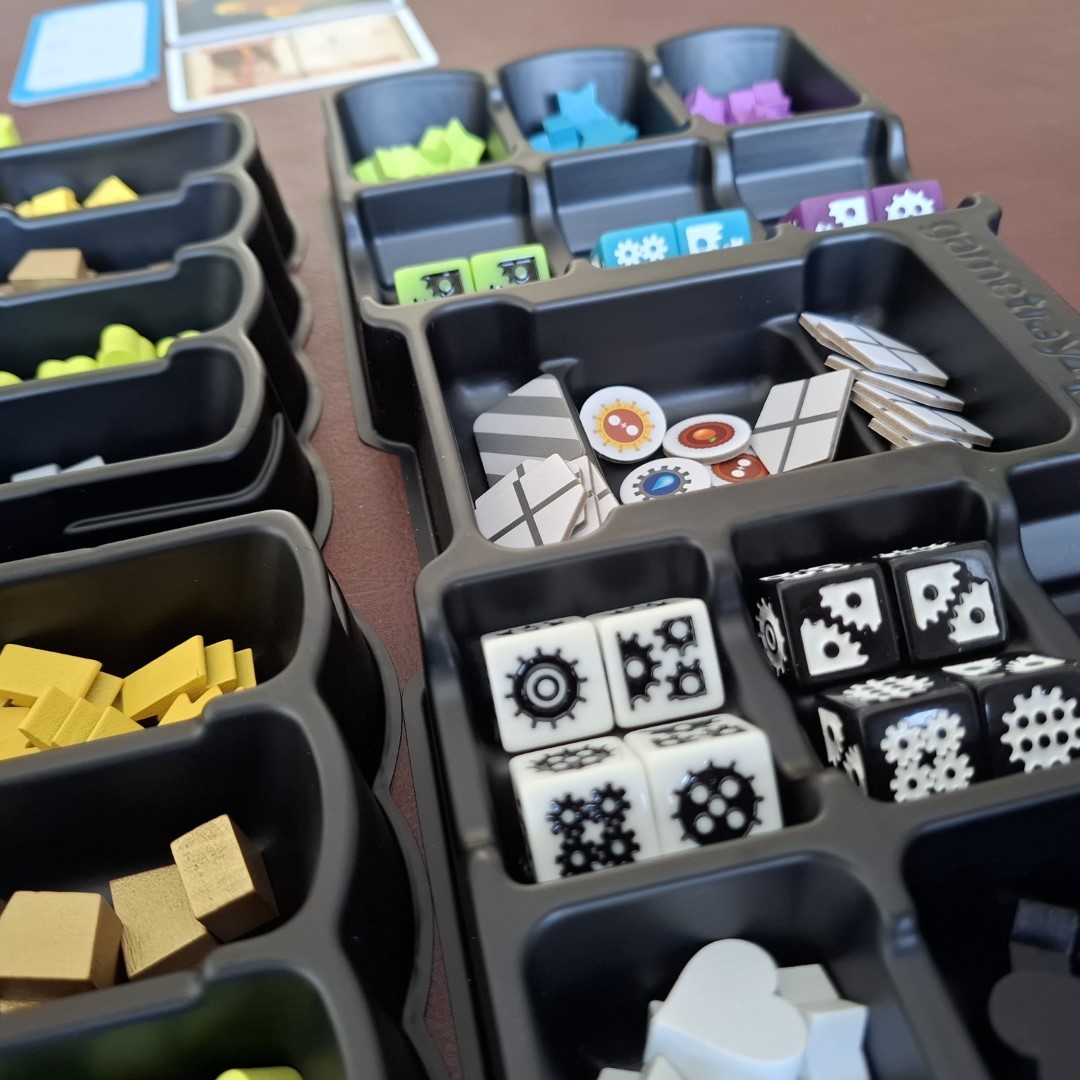
On your turn you either
– Place a worker
– retrieve any/all workers
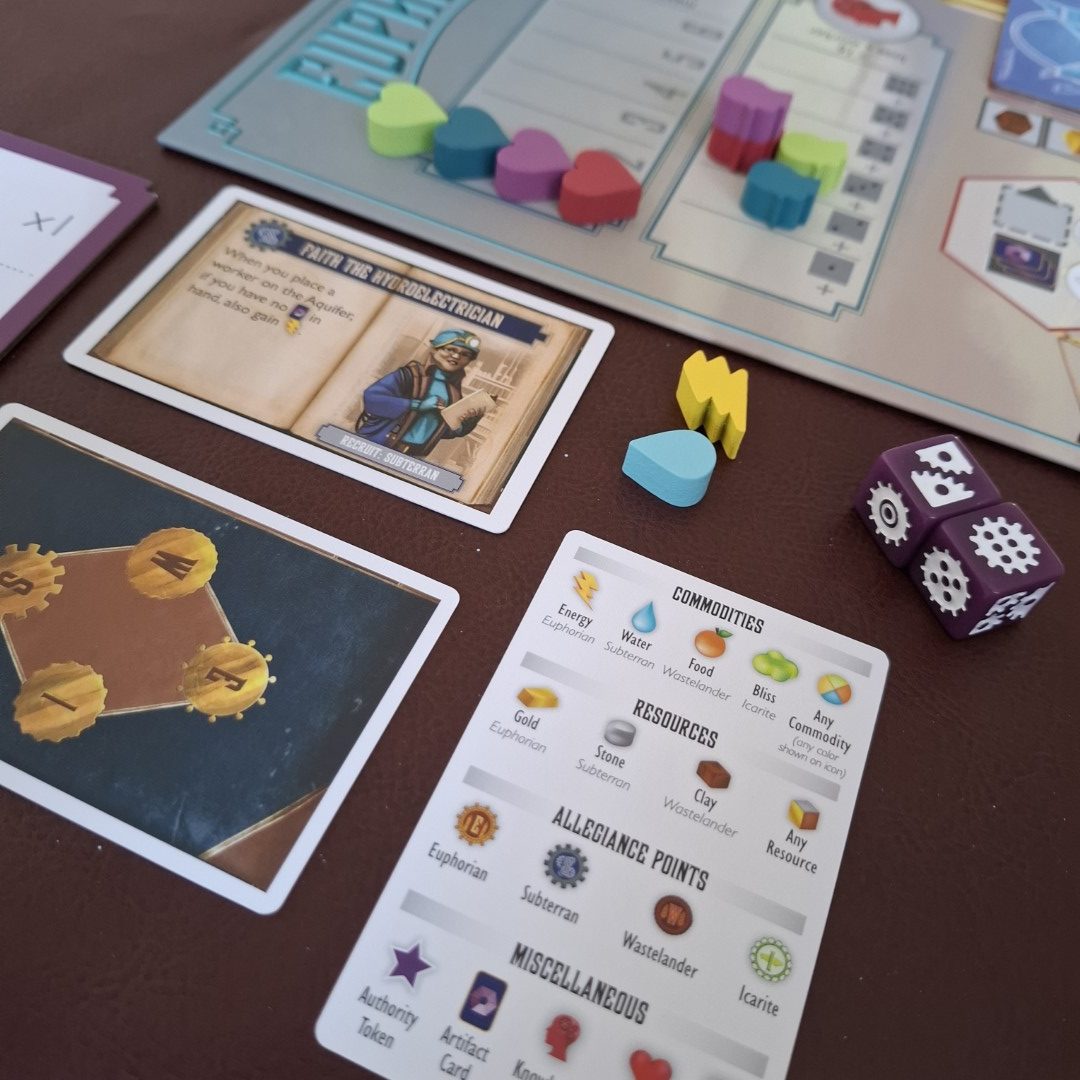
Worker Placement & Resource Management
Players take turns placing their workers on various spots to collect resources like energy, food, water, gold or new workers. The board is split into these faction areas with each offering a different resource and some spots require high rolls, while others favor lower ones. Workers can also be placed to construct markets. Constructed markets offer plots of land that players can exchange goods for, in return, a reward and placement of authority markers. Tunnels represent factions attempting to access each other’s resources, so advancing this to completion unlocks another action.
There’s a mixture of worker placement spaces. Some allow workers to be bumped, which is great. But equally isn’t because it forces the bumped player to roll the dice and complete a knowledge check, meaning being bumped means you may actually end up losing a worker.
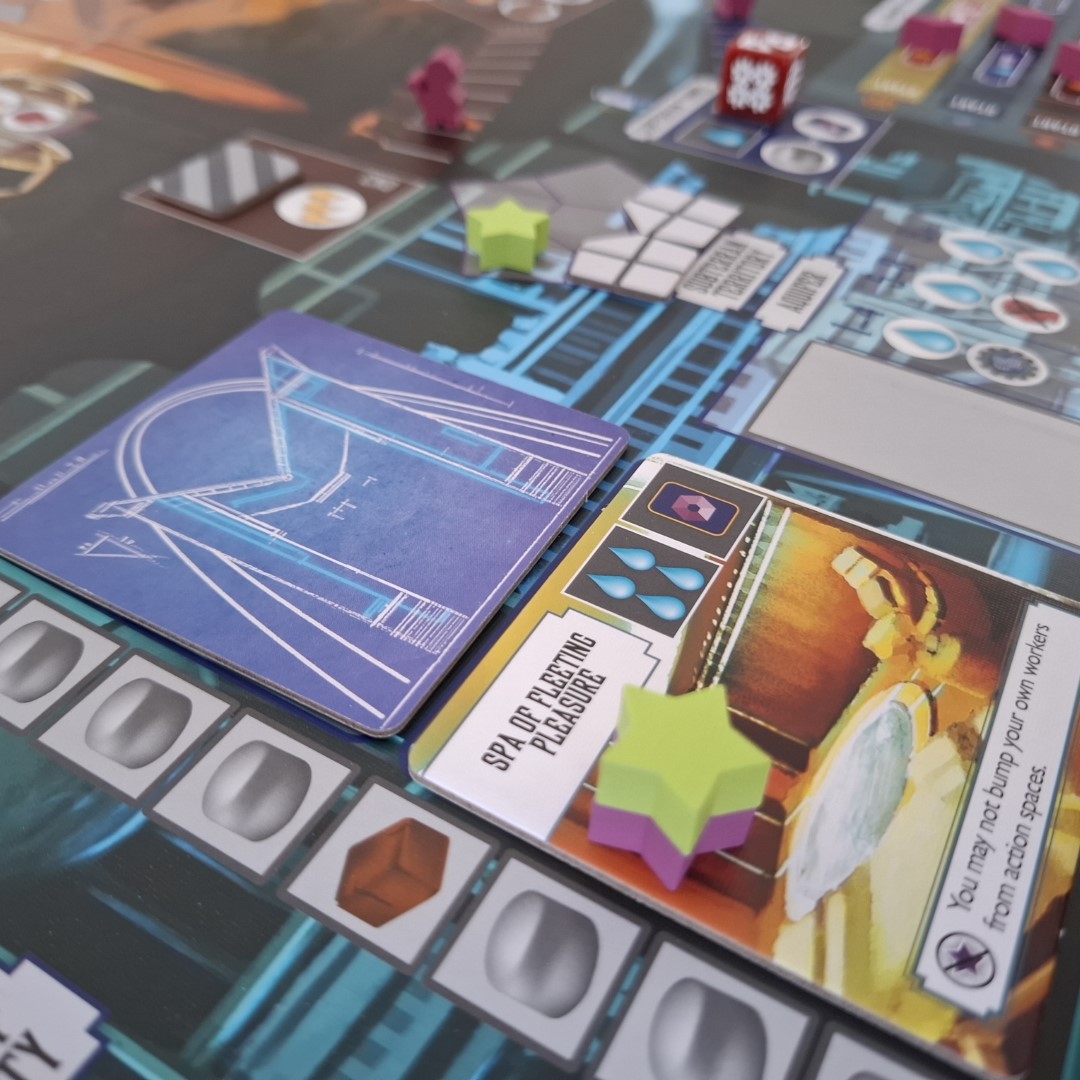
Managing Worker Intelligence
One of Euphoria’s key mechanics/twists is worker intelligence. Each time a player retrieves their workers, they roll their dice. If the sum of their workers is too high, one might escape—forcing the player, then spend turns recruiting a new, lower-value worker. Keeping your workers dumb but efficient is essential, although it feels like there’s little way to mitigate dice rolls.
Victory in Euphoria is achieved by placing all 10 of your authority stars on the board. These can be earned through faction loyalty, constructing buildings, and controlling key areas. It’s a race to see who can claim dominance over the dystopian world first.
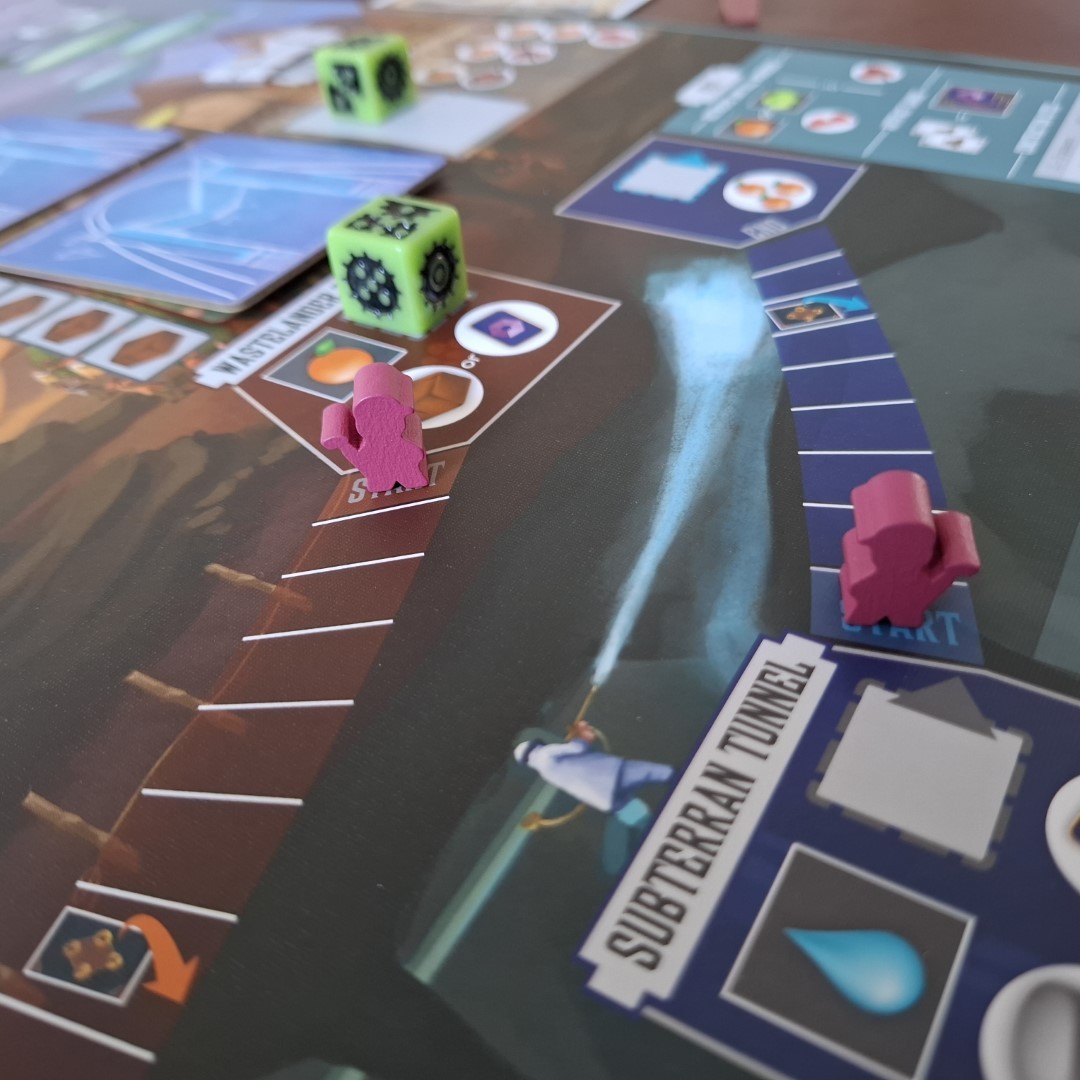
Initial Thoughts
Euphoria art style is colourful and striking. Although you could say it’s also a little cluttered and equally covered up by the game components and the board does almost feel difficult to read. However, like all Stonemaier games, the components are top-notch, featuring custom dice, thick cardboard tokens, and well-designed player mats.
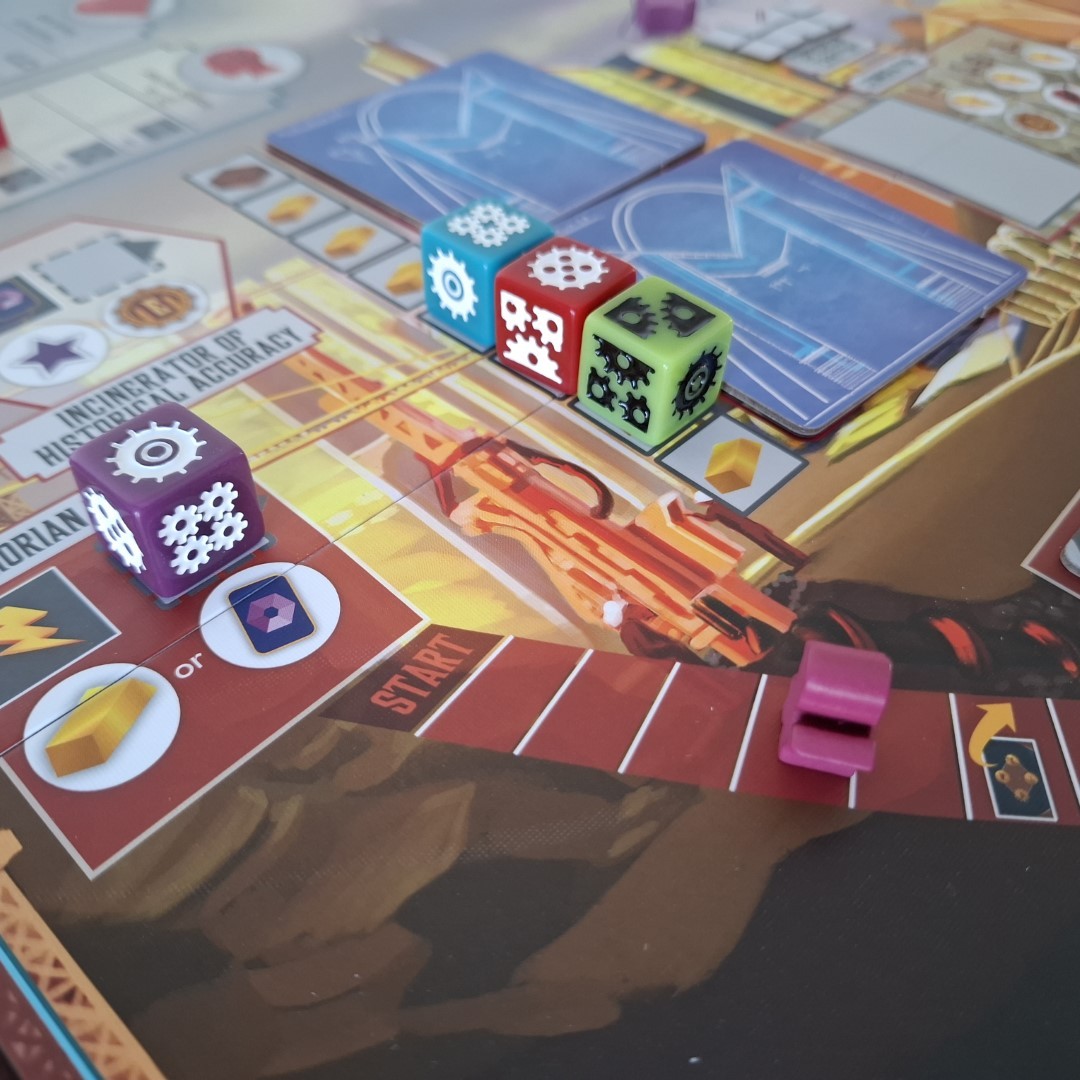
The first playthrough can feel a little overwhelming, and Euphoria feels like one of those games where you need to play it again for it to click. You might even say that the dice-as-workers concept adds a layer of unpredictability or is the games way of forcing players to constantly adapt their strategies.
Euphoria also has a Scythe like ending that feels almost unexpected, which adds tension to the game.
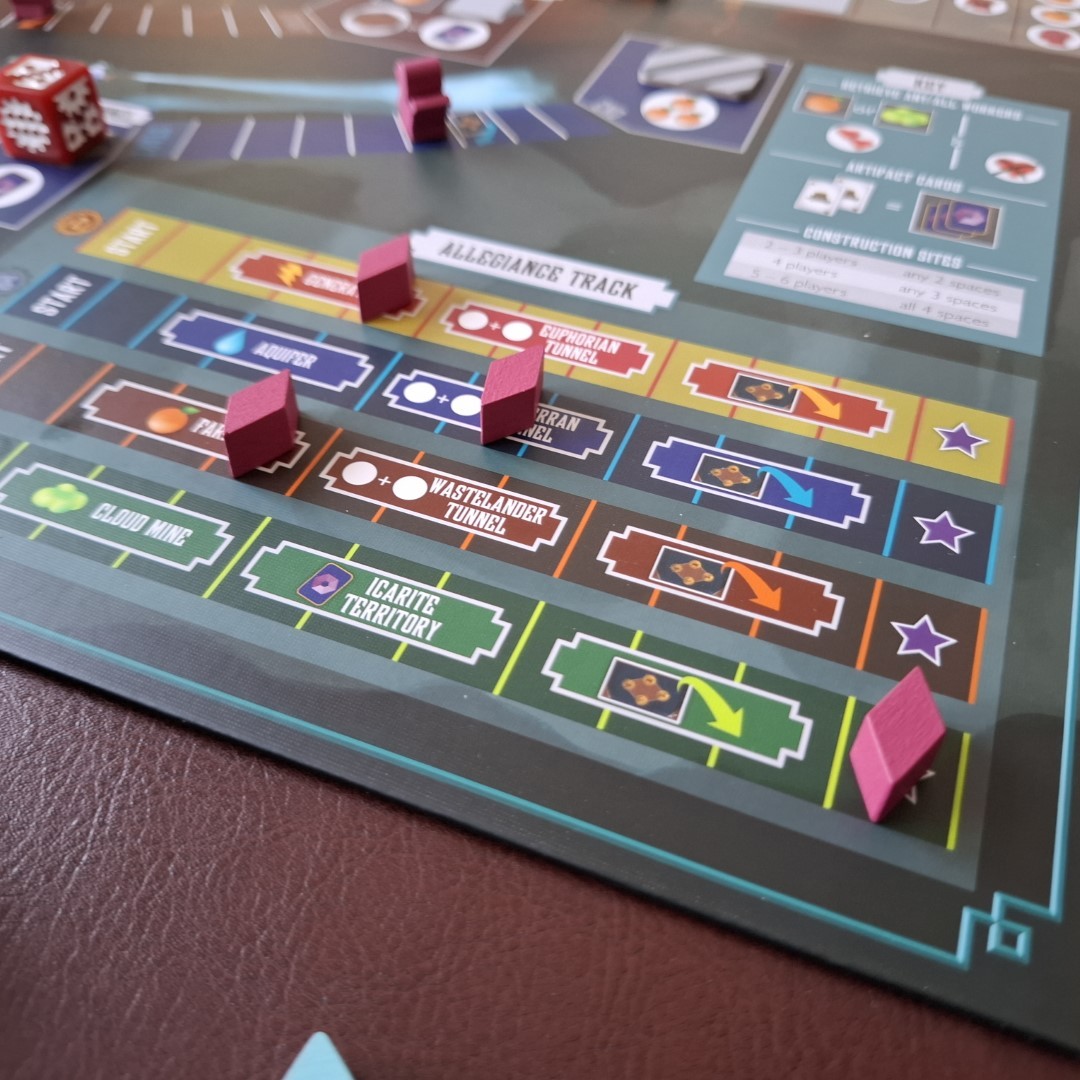
More plays, more thoughts
Once you get past the initial learning curve, which admittedly compared to say a Vital Lacerda game isn’t really that steep. Euphoria offers a somewhat engaging experience. The game does reward careful planning while still allowing room for adaptability, which you could say was forced through dice rolling. However, I don’t think Euphoria is perfect.
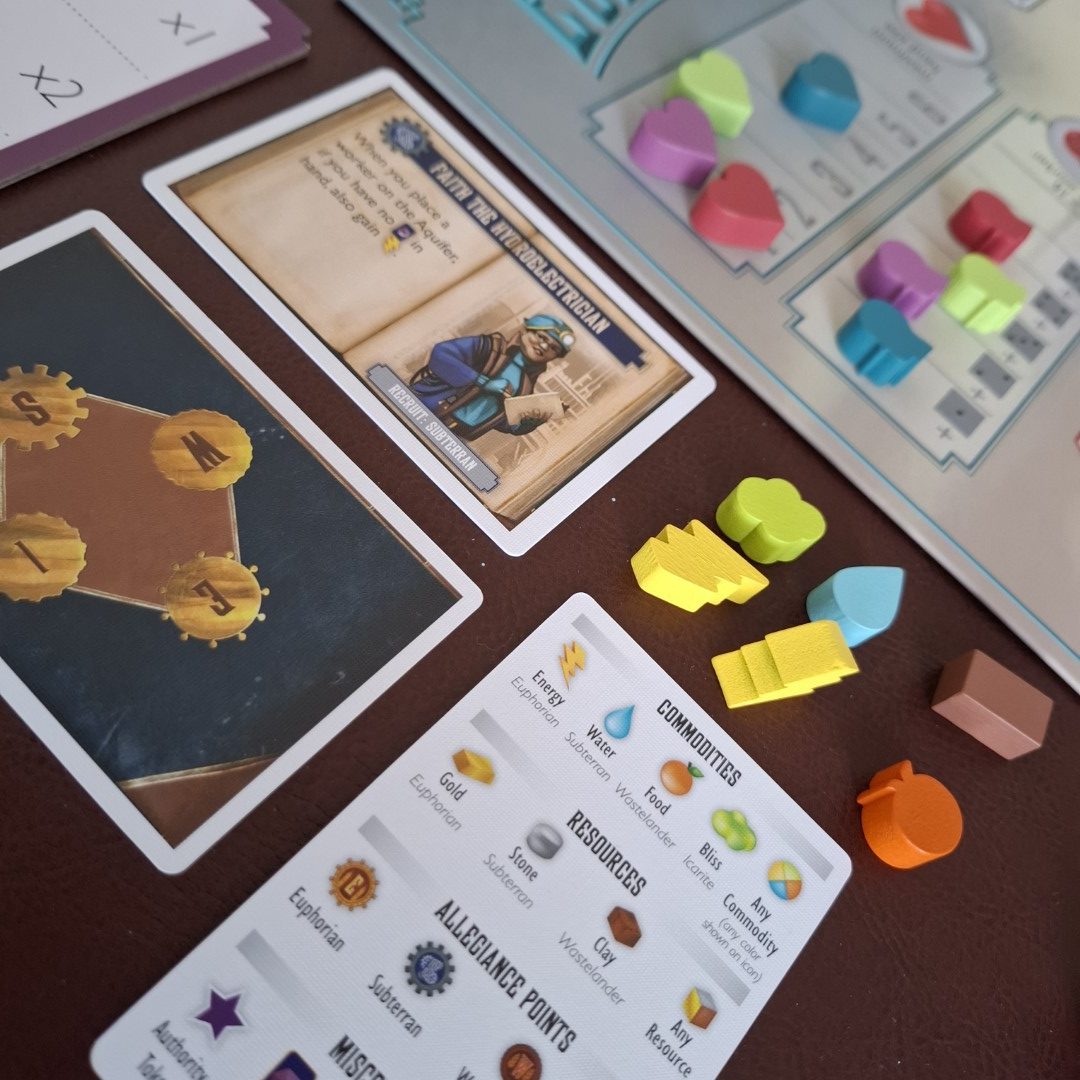
My biggest issues are, I think, after a couple of plays, you know when you’re behind and not going to win. So you can sit there and know that you’re not going to win. Or in our last game, one player sat and declared that if they placed in one spot, another player would win, but if they went in another, a different player would. So there’s almost a sense that you can just become an agency to the game as other players race ahead, or you are indeed the king or queen maker?
The reliance on dice rolls means there’s an element of luck, and I don’t think there’s a way to mitigate it. You could return fewer workers, but then that’s less efficient, and worker placements are all about efficiencies. Also, some faction abilities and recruit cards can feel unbalanced at times, leading to situations where certain strategies are noticeably stronger.
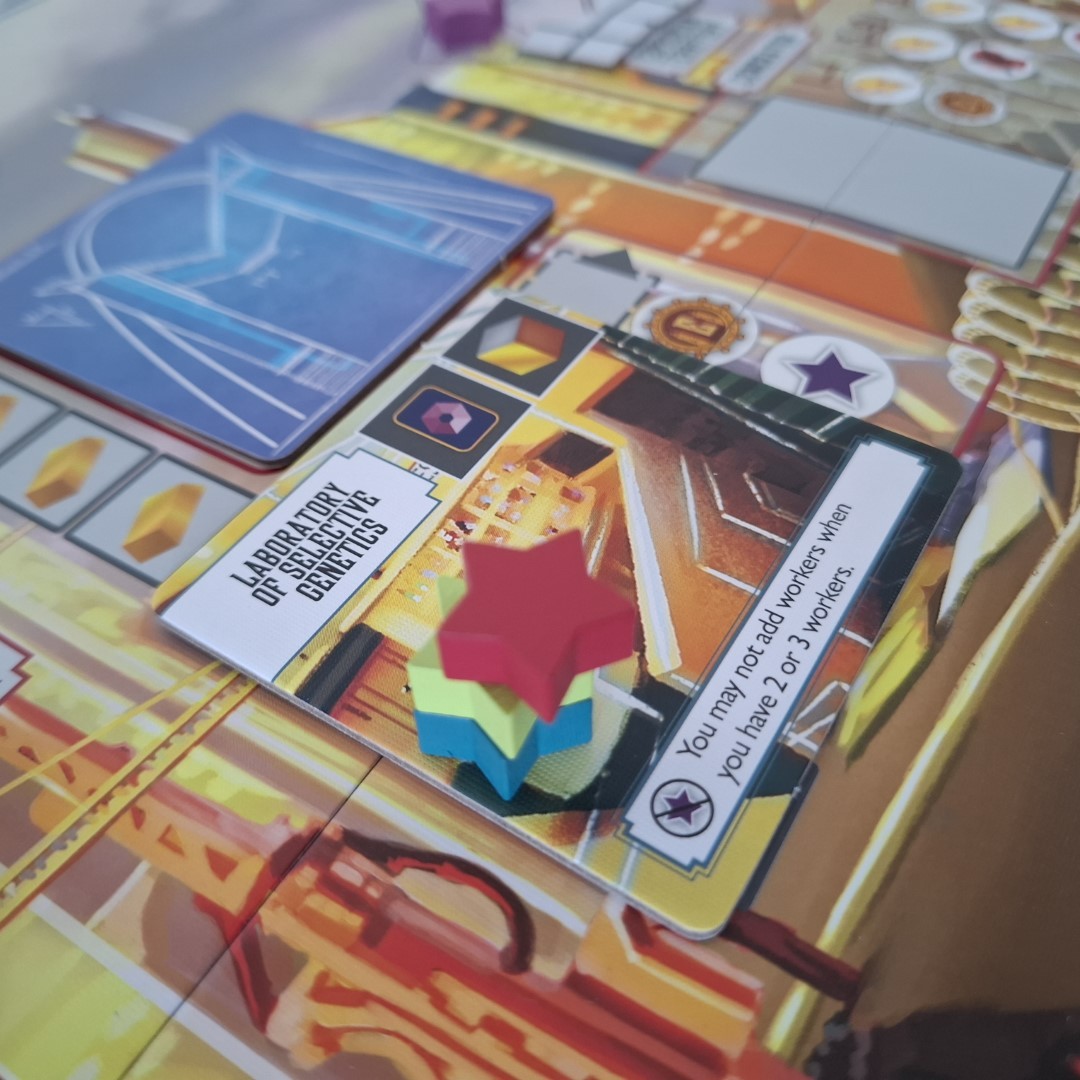
For fans of worker-placement games who enjoy a bit of unpredictability and thematic depth, Euphoria is a solid choice. It plays well with different player counts, though it shines best at four players, where the competition for resources and spaces is at its peak.
Final Thoughts
As you know, I rate games on the scale of:
- Buy or Play
- Wait for Sale, Play if You Like Game XYZ
- Avoid
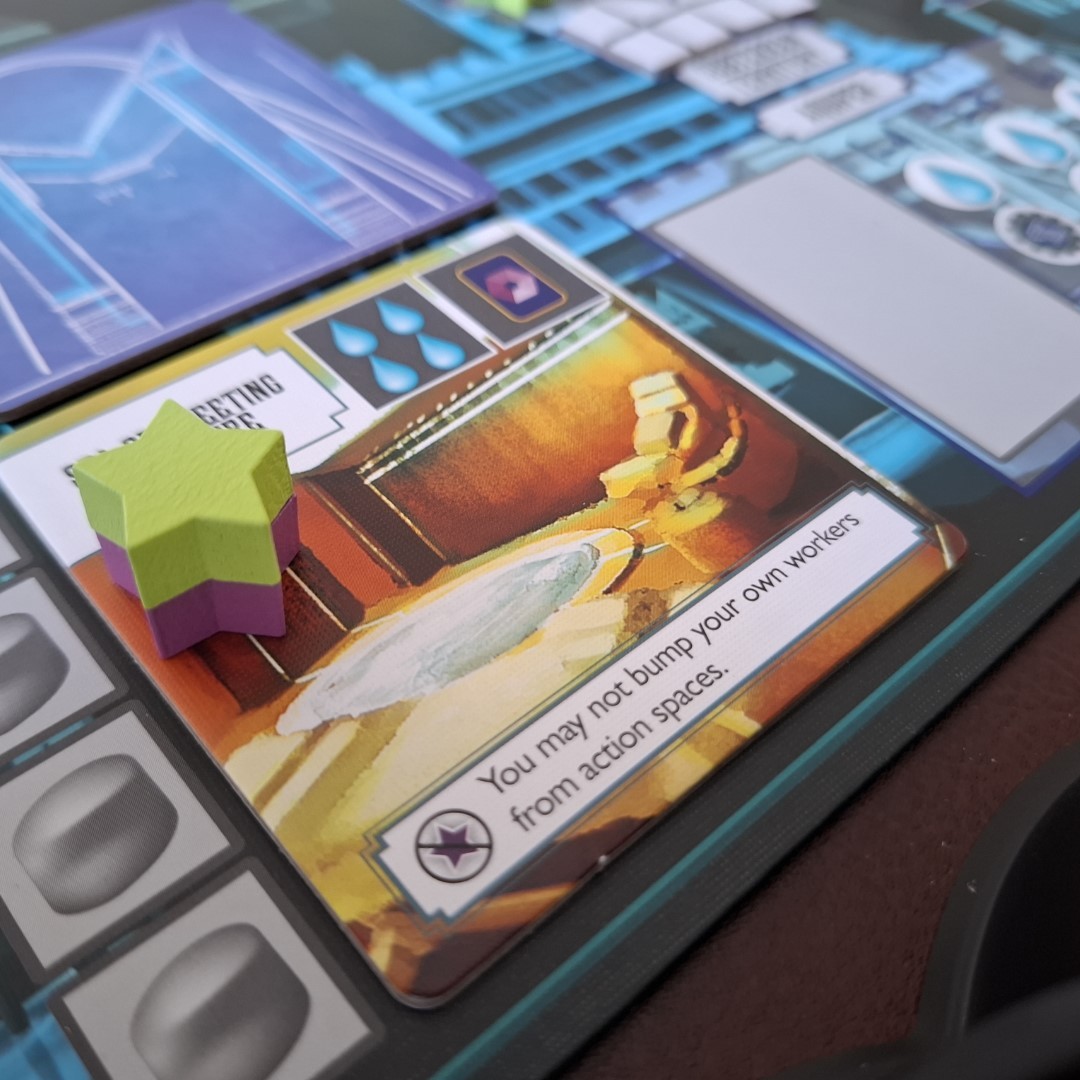
Euphoria isn’t terrible, but equally, it isn’t great. It’s fundamentally alright, and I think you might find yourself wishing you were playing something else. Okay, maybe I’m being too harsh. It has some great moments. But I don’t particularly love Scythe for its sudden ending, and I can’t help but feel there’s a bit of dejavu here. Sprinkled with some rather frustrating dice rolling, which can set you back massively. Thematically, yes, your workers realise they are in a dystopia and therefore run away, but mechanically and gameplay wise, it feels like a huge setback.
However, if you don’t mind, you don’t mind a bit of unpredictability. And you can look past what feels like a cluttered board. Then maybe Euphoria is for you. For me, it scores a “wait for sale.” Admittedly, if you like Scythe’s ending, you may enjoy this, although Euphoria feels denser in its rules. And has a bigger hurdle of rules to get over.
